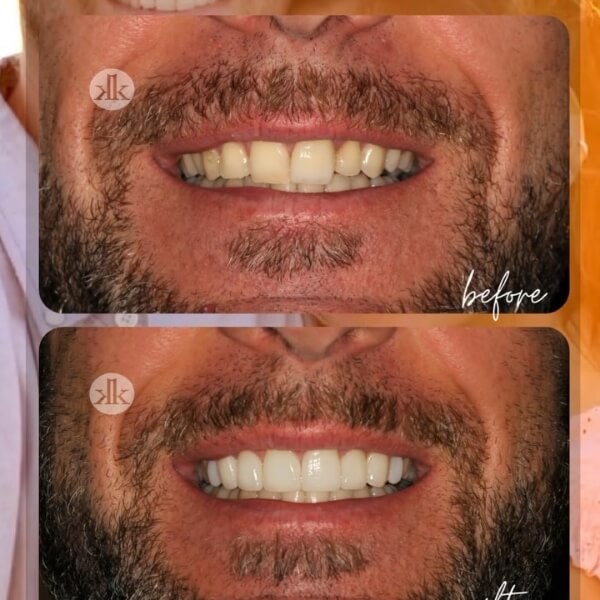
Have you ever wrestled with a piece of dental floss and wondered if there’s a better way to keep your gums healthy? Many people simply give up on flossing altogether, even though they know it’s detrimental to their oral health. However, before you resort to stretching the truth when your dentist asks about your flossing habits at your next teeth cleaning, check out the benefits of water flossing. In this blog, we’ll get into how water flossing works, its benefits, and who might (or might not) be the best candidate for this modern oral hygiene tool.
Table of Contents
- What Is Water Flossing?
- Benefits of Water Flossing
- Water Flossing vs. Traditional Flossing: Which Is Better?
- Is There Anyone Who Shouldn’t Use a Water Flosser?
- Learn More About Caring For Your Gums in La Jolla
What Is Water Flossing?
Water flossing is a method of tooth and gum care that uses a handheld device to stream a pressurized jet of water between your teeth and along the gumline. It’s mess-free, easy to use, and backed by research. In fact, studies show that water flossers can be just as effective (if not more so) than traditional floss in fighting gum disease and gingivitis.
Benefits of Water Flossing
Water flossers aren’t just a fancy gadget—they offer some real advantages, especially for people with specific oral health needs. So, what are some of the benefits of water flossers?
They’re Gentle on Gums
Water flossers are ideal for people with sensitive gums or those prone to bleeding when using regular dental floss. The pulsating stream of water cleans thoroughly without the abrasion that string floss can sometimes cause.
They’re Great for Braces and Implants
If you’ve ever tried flossing around braces, dental bridges, or implants, you know it’s no easy task. Water flossers are effective at navigating these obstacles and removing food particles from hard-to-reach areas.
They Reduce Plaque and Inflammation
Studies have shown that water flossing can significantly reduce plaque buildup and bleeding associated with gingivitis. It reaches below the gumline and flushes out harmful bacteria that brushing alone can miss.
They’re Easy to Use
For people with limited mobility due to arthritis, Parkinson’s, or dexterity issues, a water flosser can be much easier to manage than wrangling string floss.
They Improve Compliance
Let’s face it—many people skip flossing altogether because of many of the reasons we mentioned above. Water flossing is often seen as faster and more enjoyable, which means people are more likely to stick with it as part of their daily routine.
Water Flossing vs. Traditional Flossing: Which Is Better?
This is the big question; however, the answer depends on what you’re trying to accomplish. Traditional flossing is still an effective method for scraping plaque off the sides of your teeth, especially if you’re using the proper technique. But water flossing shines in several key areas.
In clinical studies, water flossers have been shown to reduce gingivitis and bleeding more effectively than string floss. That’s primarily due to their ability to clean below the gumline and reach areas that string floss can’t. They’re especially beneficial for people with deep gum pockets or existing signs of gum disease.
However, for someone with healthy gums and no dental appliances, traditional floss might be sufficient. Some dentists may even recommend a combination of both methods for optimal plaque control, depending on your needs. That said, the best flossing method is the one you’ll actually do, so talk to Dr. Kohani about whether a water flosser is right for you and how to incorporate it into your brushing routine.
Is There Anyone Who Shouldn’t Use a Water Flosser?
While water flossers are a safe and effective option for many people, there are a few cases where they might not be the ideal choice:
- Patients recovering from oral surgery or injuries: The water pressure could interfere with healing, so you should always check with your dentist before use during recovery from oral surgery.
- People with active gum infections or abscesses: Water flossing might aggravate the infection or push bacteria further into the gums.
- Inconsistent use: If you’re unlikely to use it daily, it won’t be as effective as consistent flossing with regular dental floss.
- Using it as a replacement without guidance: Always consult your dentist before switching completely from traditional floss to ensure it’s the best option for you.
Learn More About Caring for Your Gums in La Jolla
Now that you know the benefits of water flossing, is it time to retire your string floss? If water flossing makes your daily routine easier and more enjoyable, it’s an innovative and effective way to invest in your oral health. To learn more about water flossing and keeping your teeth and gums healthy, schedule an appointment at La Jolla Cosmetic Dentistry & Orthodontics today by calling (858) 295-0603 or filling out our online contact form.









